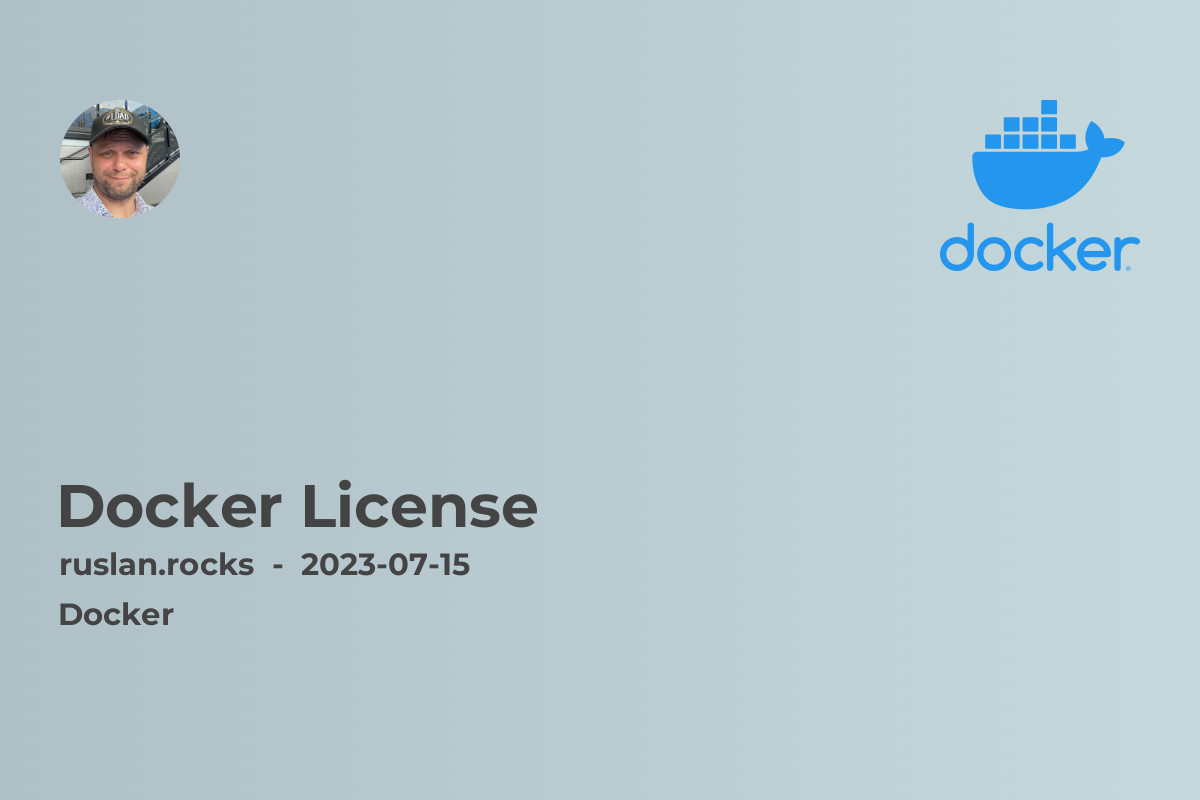- What is the Docker License?
- How Does the Docker License Impact Businesses and Developers?
- Compliance and Best Practices

Docker has revolutionized the way software is developed, shipped, and deployed, but do you know the legal implications of using Docker? In this article, we will explore the Docker license and the legal framework behind containerization. We'll discuss the different aspects of the license, its impact on businesses and developers, and the importance of compliance.
What is the Docker License?
The Docker license, officially known as the Apache License 2.0, is an open-source license that governs the distribution and use of the Docker software and its associated components. The Apache License 2.0 is highly permissive and allows users to modify and distribute Docker without many restrictions. This license enables individuals and organizations to benefit from the flexibility and portability of Docker containers.
How Does the Docker License Impact Businesses and Developers?
For businesses and developers, understanding the implications of the Docker license is crucial. The permissive nature of the Apache License 2.0 provides significant advantages, allowing Docker to be used both commercially and non-commercially without the need for additional permissions or licensing fees. This promotes widespread adoption and fosters innovation in the Docker ecosystem.
However, it's important to note that while the Docker software itself is open-source, certain components and libraries used within Docker may have different licenses. It is essential to review the licenses of these dependencies and ensure compliance with their respective terms and conditions.
Compliance and Best Practices
To ensure compliance with the Docker license and associated licenses, it's recommended to follow some best practices:
-
Review Dependencies: As mentioned earlier, Docker relies on various libraries and components. Conduct a thorough review of all dependencies to identify their licenses and any associated obligations.
-
Maintain Proper Notices: The Apache License 2.0 requires that you include proper notices for any modifications or changes made to the Docker software. Always provide the necessary attribution and copyright notices when distributing Docker or its modified versions.
-
Understand License Compatibility: When using Docker in conjunction with other open-source projects or proprietary software, it's essential to understand the compatibility of different licenses. Some licenses may impose restrictions or requirements that need to be considered.
-
Stay Up to Date: The open-source landscape is dynamic, with licenses evolving over time. It's crucial to stay informed about any updates or changes to the Docker license and associated licenses to ensure continued compliance.
Now that we have explored the Docker license and its impact, let's take a look at some closely related articles that can further enhance your understanding of Docker and containerization:
-
Introduction To Containerization: This article provides an in-depth overview of containerization technology and its benefits.
-
What Is Docker: Learn about the fundamental concepts and functionalities of Docker, the leading containerization platform.
-
What Is Docker Compose: Understand how Docker Compose simplifies the management and orchestration of multi-container applications.
-
Advantages And Disadvantages Of Container Orchestration: Explore the benefits and challenges of container orchestration, including popular tools like Kubernetes.
-
Managing Microservices With Docker Swarm And Kubernetes: Discover how Docker Swarm and Kubernetes can help you deploy and manage microservices at scale.
By exploring these articles, you'll gain a comprehensive understanding of Docker and its related technologies, enabling you to make informed decisions and navigate the containerization landscape effectively.
In conclusion, understanding the Docker license is paramount for businesses and developers leveraging containerization technologies. By adhering to compliance requirements and following best practices, organizations can harness the power of Docker while ensuring legal and ethical usage. Stay informed, be responsible, and unlock the full potential of Docker for your projects.
